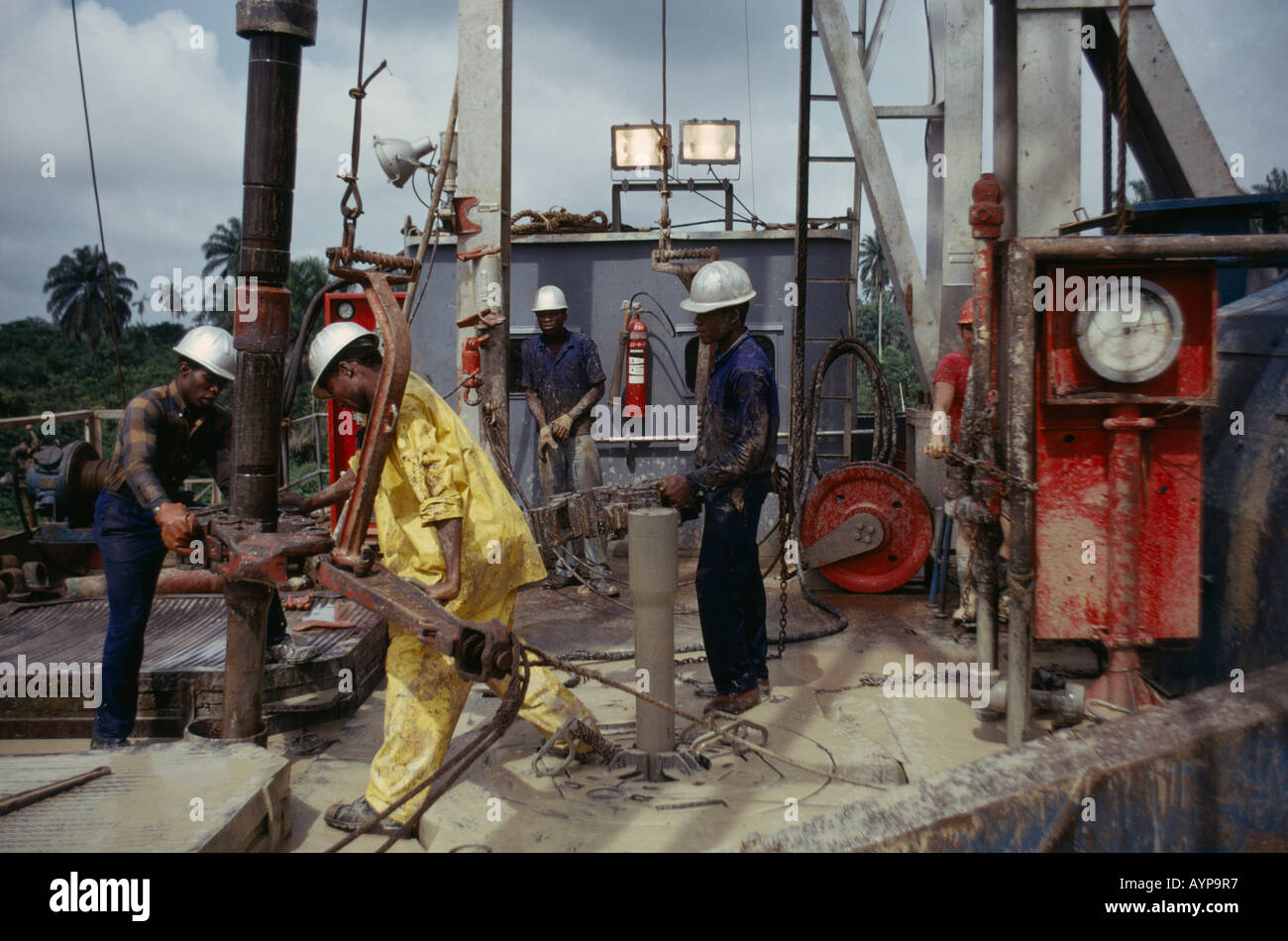By Andrew Darah JP
I will begin this few lines by wishing all Workers Happy International Worker’s Day Celebration
As we celebrate International Worker’s Day today, we must take a moment to reflect on few issues, but first who is a WORKER?


A worker can refer to various individuals depending on the context;
1.Employee: A person who is hired to perform specific tasks or duties in exchange for compensation, such as a salary or wages.
2.Laborer: A person who performs physical or manual labor, often in industries like construction, manufacturing, or agriculture.
3.Professional: A person who has specialized knowledge, skills, or training in a particular field, such as a doctor, engineer, or teacher.
4.Freelancer or contractor: A self-employed individual who offers services or works on a project-by-project basis.
5.Blue-collar worker: A person who performs manual labor or works in a service industry, often in a non-office setting.
6.Essential worker: A person who works in a critical infrastructure or essential service, such as healthcare, transportation, or food production.
THE PLACE OF THE WORKER IN THE ECONOMY
The place of the worker in the Nigerian economy is significant, as workers are the backbone of the country’s economic growth and development. Nigerian workers contribute to various sectors such as;
1.Labor Force*: Nigeria has a large and growing labor force, with over 80 million people employed or actively seeking employment.
2.Informal Sector*: A significant portion of Nigerian workers are engaged in the informal sector, which includes activities like farming, trading, and artisanal work.
3.Agriculture*: Agriculture is a significant sector in Nigeria, employing millions of workers, particularly in rural areas.
4.Manufacturing*: The manufacturing sector is also important, with workers engaged in industries like textiles, food processing, and construction materials.
5.Services*: The services sector, including finance, transportation, and communication, employs a significant number of workers.
8.Skills Development*: There is a growing focus on skills development and vocational training to enhance workers’ productivity and competitiveness.
9.Economic Growth*: Nigerian workers are essential for driving economic growth, innovation, and poverty reduction in the country.
MAJOR CHALLENGES THAT NIGERIA WORKERS FACE TODAY
Some of the major challenges that the Nigerian workers face today include;
1.Low wages*: Many Nigerian workers struggle with low wages.
2.Insecurity and safety concerns*: The country’s security challenges, including kidnapping, affect workers’ safety and well-being.
3.Poor working conditions*: Nigerian workers often face hazardous working conditions, especially in industries like construction and manufacturing.
4.Lack of job security and benefits*: Many workers lack access to benefits like health insurance, pension plans, and paid leave.
5.Corruption and nepotism*: Corruption and favoritism in the workplace can limit opportunities and create unfair treatment.
6.Limited access to training and development*: Nigerian workers often have limited opportunities for professional growth and skill development.
7.High cost of living*: The high cost of living in Nigeria can make it difficult for workers to make ends meet.
8.Unstable power supply and infrastructure*: Frequent power outages and inadequate infrastructure can hinder productivity and efficiency.
9.Brain drain and talent migration*: The best and brightest Nigerian workers often emigrate to other countries in search of better opportunities.
SOME POLICIES AND INITIATIVES THAT GOVERNMENT SHOULD IMPLEMENT TO SUPPORT WORKER HAPPINESS
1.Fair wages and benefits*: Ensure a living wage, paid time off, and comprehensive benefits like healthcare and retirement plans.
2.Work-life balance*: Encourage flexible schedules, telecommuting options, and paid family leave to support personal and family responsibilities.
3.Safe and healthy work environments*: Enforce safety regulations, provide mental health resources, and promote wellness initiatives.
4.Professional development opportunities*: Offer training, education, and career advancement programs to support growth and engagement.
5.Employee recognition and appreciation*: Encourage employers to acknowledge and reward employees’ contributions and milestones.
6.Worker protections and rights*: Strengthen labor laws, protect against discrimination and harassment, and ensure access to fair dispute resolution processes.
7.Mental health support*: Provide resources and services to support employees’ mental well-being, such as counseling and stress management programs.
8.Autonomy and decision-making power*: Encourage employee involvement in decision-making processes and offer opportunities for autonomy and ownership.
9.Diversity, equity, and inclusion initiatives*: Foster inclusive workplaces that celebrate diversity, promote equity, and address systemic barriers.
10.Regular feedback and open communication*: Encourage open dialogue, regular check-ins, and constructive feedback to support employee growth and satisfaction.
These initiatives can contribute to a positive work environment, increased job satisfaction, and overall worker happiness!
ROLE THAT TRADE UNIONS MUST PLAY TO BETTER THE LIVES OF WORKER
Trade unions have a vital role to play in improving the lives of workers. Some of the key roles they can play include:
1.Collective Bargaining*: Negotiating with employers for better wages, benefits, and working conditions.
2.Protecting Workers’ Rights*: Ensuring that workers are treated fairly and that their rights are respected, including preventing discrimination and harassment.
3.Improving Working Conditions*: Advocating for safe and healthy working conditions, including reducing stress and workload.
4.Providing Support and Representation*: Offering guidance, advice, and representation for workers in disputes or disciplinary actions.
5.Promoting Social and Economic Justice*: Campaigning for policies and laws that benefit workers, such as fair labor standards, social security, and workers’ compensation.
6.Education and Training*: Providing education and training programs to help workers develop new skills and advance in their careers.
7.Organizing and Mobilizing*: Organizing workers to take collective action, including strikes, protests, and campaigns, to achieve their goals.
8.Holding Employers Accountable*: Holding employers accountable for their actions and ensuring they adhere to labor laws and agreements.
9.Advocating for Work-Life Balance*: Pushing for policies that support a healthy balance between work and personal life, such as paid leave and flexible working hours.
10.Empowering Workers*: Empowering workers to take an active role in shaping their working lives and the future of their industries.
By playing these roles, trade unions can significantly improve the lives of workers, promoting fairer treatment, better working conditions, and a more equitable society.
STEPS WORKERS MUST TAKE TO BETTER THEIR LIVES
Workers must play vital role in advocating for their rights and improving their lives, as well as the lives of their colleagues and community. Some key roles that workers can play include:
1.Unionization*: Organizing and joining labor unions to negotiate better wages, benefits, and working conditions.
2.Advocacy*: Supporting policies and legislation that promote workers’ rights, such as fair labor standards, safety regulations, and anti-discrimination laws.
3.Collective action*: Participating in strikes, protests, and other forms of peaceful protest to bring attention to workers’ issues and push for change.
4.Education and training*: Developing new skills and knowledge to stay competitive in the job market and improve career prospects.
5.Workplace leadership*: Taking on leadership roles in the workplace to promote positive change, improve working conditions, and support colleagues.
6.Community engagement*: Building alliances with community organizations and advocating for policies that benefit workers and their families.
7.Mentorship*: Sharing knowledge and experience with newer or less experienced workers to help them navigate the workplace and advance in their careers.
8.Health and safety advocacy*: Promoting a safe and healthy work environment and advocating for policies and procedures that protect workers’ well-being.
By playing these roles, workers can empower themselves and their colleagues to create positive change and improve their lives, both on and off the job.
CONCLUSION:
As we celebrate the Nigeria workers today, it’s my humbly prayer that God should touch the hearts of our leaders and policy makers to put in place, policies that will better the lives of the Nigeria worker and motivate them to show more commitment and dedication to duty.
I call on the various Union leaders to wake up and do the needful because workers have been relegated to the background for too long. And to workers, as we celebrate today, let us take time out to reflect on the journey so far, the impact we have made and also think of ways to make more imparts.
Once again, I congratulate all workers and thank them for their good work.
Wadooooooooo
Andrew Darah JP





